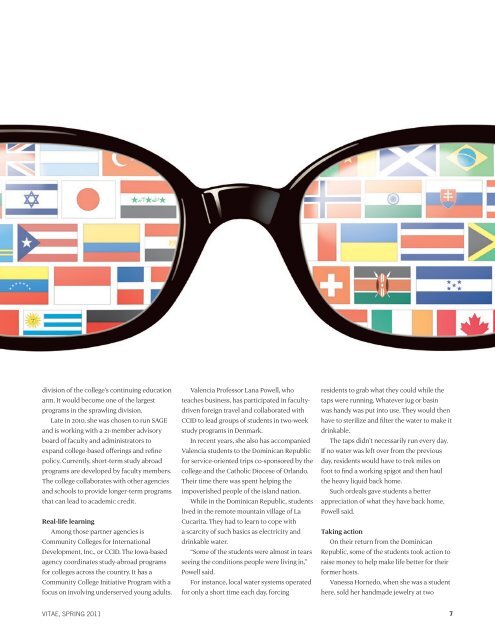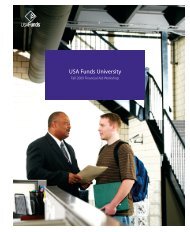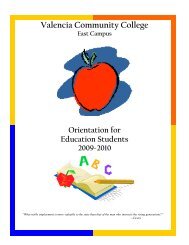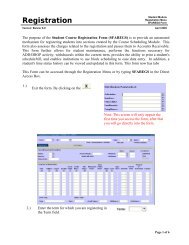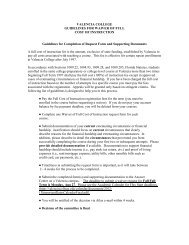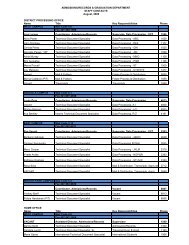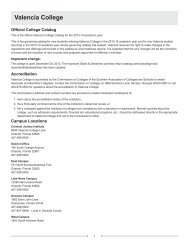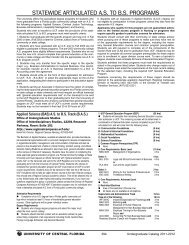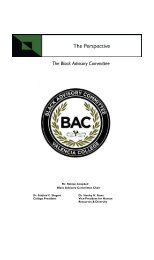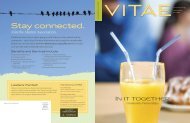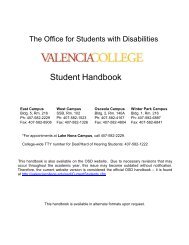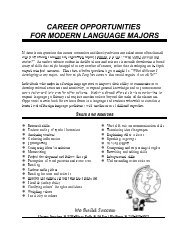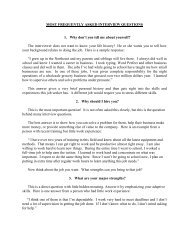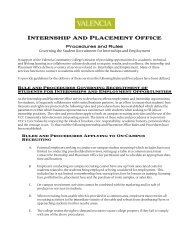Vitae Magazine, Spring 2011 - Valencia College
Vitae Magazine, Spring 2011 - Valencia College
Vitae Magazine, Spring 2011 - Valencia College
Create successful ePaper yourself
Turn your PDF publications into a flip-book with our unique Google optimized e-Paper software.
division of the college’s continuing education<br />
arm. It would become one of the largest<br />
programs in the sprawling division.<br />
Late in 2010, she was chosen to run SAGE<br />
and is working with a 21-member advisory<br />
board of faculty and administrators to<br />
expand college-based offerings and refine<br />
policy. Currently, short-term study abroad<br />
programs are developed by faculty members.<br />
The college collaborates with other agencies<br />
and schools to provide longer-term programs<br />
that can lead to academic credit.<br />
Real-life learning<br />
Among those partner agencies is<br />
Community <strong>College</strong>s for International<br />
Development, Inc., or CCID. The Iowa-based<br />
agency coordinates study-abroad programs<br />
for colleges across the country. It has a<br />
Community <strong>College</strong> Initiative Program with a<br />
focus on involving underserved young adults.<br />
<strong>Valencia</strong> Professor Lana Powell, who<br />
teaches business, has participated in facultydriven<br />
foreign travel and collaborated with<br />
CCID to lead groups of students in two-week<br />
study programs in Denmark.<br />
In recent years, she also has accompanied<br />
<strong>Valencia</strong> students to the Dominican Republic<br />
for service-oriented trips co-sponsored by the<br />
college and the Catholic Diocese of Orlando.<br />
Their time there was spent helping the<br />
impoverished people of the island nation.<br />
While in the Dominican Republic, students<br />
lived in the remote mountain village of La<br />
Cucarita. They had to learn to cope with<br />
a scarcity of such basics as electricity and<br />
drinkable water.<br />
“Some of the students were almost in tears<br />
seeing the conditions people were living in,”<br />
Powell said.<br />
For instance, local water systems operated<br />
for only a short time each day, forcing<br />
residents to grab what they could while the<br />
taps were running. Whatever jug or basin<br />
was handy was put into use. They would then<br />
have to sterilize and filter the water to make it<br />
drinkable.<br />
The taps didn’t necessarily run every day.<br />
If no water was left over from the previous<br />
day, residents would have to trek miles on<br />
foot to find a working spigot and then haul<br />
the heavy liquid back home.<br />
Such ordeals gave students a better<br />
appreciation of what they have back home,<br />
Powell said.<br />
Taking action<br />
On their return from the Dominican<br />
Republic, some of the students took action to<br />
raise money to help make life better for their<br />
former hosts.<br />
Vanessa Hornedo, when she was a student<br />
here, sold her handmade jewelry at two<br />
VITAE, SPRING <strong>2011</strong><br />
7


